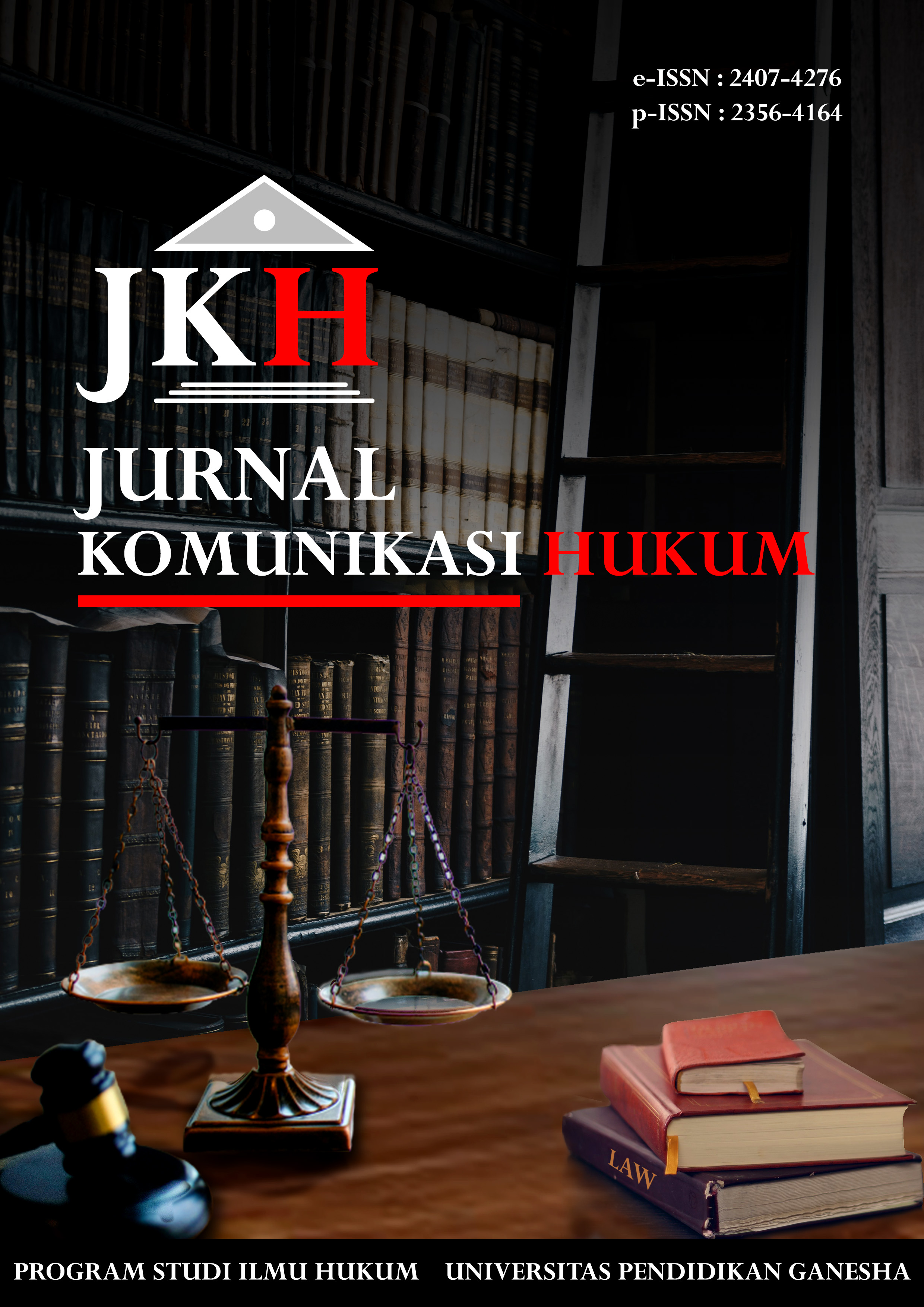Konsep Asas No Work No Pay Terhadap Pekerja Oleh Perusahaan Terdampak Pandemi Covid-19
DOI:
https://doi.org/10.23887/jkh.v7i2.37984Abstract
This study aims to determine the concept of the no work no pay principle in laws and regulations by companies with the Covid- 19 Pandemic concept. Methods This research is a prescriptive normative legal research. The legal sources of this legal research use primary and secondary legal materials. The approach technique used is the method of applying the law and the conceptual approach. Data collection techniques used are literature study, document study and interviews. The technique of analyzing legal materials is descriptive using the deductive reasoning method. Results Based on research on the concept of wages according to the no work no pay principle by the Covid- 19 pandemic company, there are several concepts that can be used as guidelines. First, the basic concept refers to and is guided by the no work no pay principle contained in Article 93 paragraph (1) of Law Number 13 of 2003 concerning Manpower which reads "Wages are not paid if the worker/labourer does not do work" . The no work no pay principle applies if the Worker/Labourer does not work on the basis of the Worker/Labourer's own fault or intention. Because there is no work without wages, it does not apply if the condition of the Worker/Labourer experiences several conditions as regulated in Article 93 paragraph (2) of the Manpower Act. However, what is noted in the wage policy in the Covid-19 pandemic is that the provisions in Article 93 paragraph (2) letter f do not apply, because it cannot be fulfilled "the employer does not employ workers or laborers due to their own mistakes or because of obstacles that can be avoided by the entrepreneur" because the Covid-19 pandemic condition is an event that cannot be avoided and is not the fault of any party.
Downloads
Published
How to Cite
Issue
Section
License
Authors who publish with this journal agree to the following terms:- Authors retain copyright and grant the journal right of first publication with the work simultaneously licensed under a Creative Commons Attribution License that allows others to share the work with an acknowledgement of the work's authorship and initial publication in this journal.
- Authors are able to enter into separate, additional contractual arrangements for the non-exclusive distribution of the journal's published version of the work (e.g., post it to an institutional repository or publish it in a book), with an acknowledgement of its initial publication in this journal.
- Authors are permitted and encouraged to post their work online (e.g., in institutional repositories or on their website) prior to and during the submission process, as it can lead to productive exchanges, as well as earlier and greater citation of published work (See The Effect of Open Access).
Authors who publish with this journal agree to the following terms:
- Authors retain copyright and grant the journal right of first publication, with the work [SPECIFY PERIOD OF TIME] after publication simultaneously licensed under aCreative Commons Attribution License that allows others to share the work with an acknowledgement of the work's authorship and initial publication in this journal.
- Authors are able to enter into separate, additional contractual arrangements for the non-exclusive distribution of the journal's published version of the work (e.g., post it to an institutional repository or publish it in a book), with an acknowledgement of its initial publication in this journal.
- Authors are permitted and encouraged to post their work online (e.g., in institutional repositories or on their website) prior to and during the submission process, as it can lead to productive exchanges, as well as earlier and greater citation of published work (See The Effect of Open Access).












